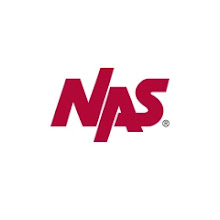Black & Decker has found a way to eliminate waste, shorten delivery time and gain better quality control over the training for its 300 field reps, all by replacing paper-based training materials with mobile learning content delivered directly to their hand-held PDAs.
The globally recognized manufacturer of power tools, hardware and home-improvement products spends thousands of dollars every year researching the most effective displays and educational materials for its products. Careful research goes into the planning of each display, and the field reps’ jobs are to set up those displays to exact specifications in the aisles of retailers, including Home Depot. They are required to replicate every detail, from the way the product is angled and the number of packages on every shelf to sign placement and inventory control. They are also expected to educate the Home Depot staff about the new products that they stock.
In the past, to create consistency across all markets, the reps were sent manuals, photographs and other materials on paper to guide them through these exacting steps. But there was no way to track whether they were reading or following the guidelines, or whether they’d even received them, says Cesar Saavedra, field sales analyst for Black & Decker. "You get bombarded with so many communications when you work in the field, there is so much waste and no accountability. A lot of it never even gets looked at."
To minimize waste and keep closer tabs on rep performance, Black & Decker began using a Reflexis Enterprise Learning System tool called Enfoblasts, which deliver short two- to three-minute information bites directly to the PDAs used by every rep. The digitized learning modules deliver key points of the products and displays, including include task lists, images, quizzes and short videos about the products.
"It’s an easy way to deliver information," Saavedra says. "It saves money, and it creates accountability because we can track who opens and reads the files."
The field reps can also show the videos to the Home Depot personnel in the aisles as a quick training tool rather than explaining the new product to them. "It increases the number of people we touch and creates a consistent message," Saavedra says.
While the idea of replacing paper-based training with multimedia content may sound expensive, it actually costs less and takes less time. The savings in cost and time come primarily from the elimination of printing and mailing materials, which can take days to produce and distribute, Saavedra says. Instead, he creates content using videos already produced by the marketing department for the product, which means there are few additional costs to develop the training.
This mobile learning model delivers on the just-in-time training promise that is especially beneficial for field workers who may not work out of an office or have a computer at home, says Jerry Massey, director of operations in the enterprise learning systems division of Reflexis in Kennesaw, Georgia. "With mobile learning there are no excuses," he says. "Everyone has a cell phone or PDA and it’s with them all the time."
Source: Workforce Management, September 24, 2008
Monday, September 22, 2008
Subscribe to:
Post Comments (Atom)






No comments:
Post a Comment